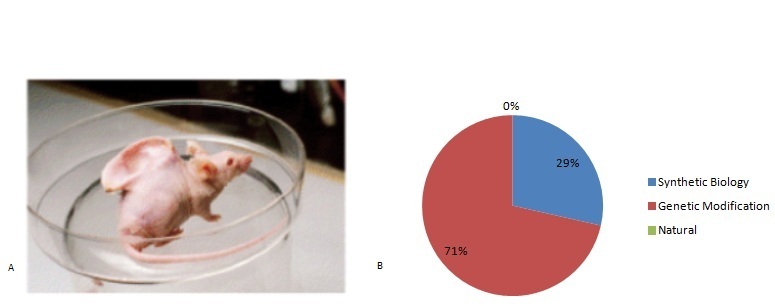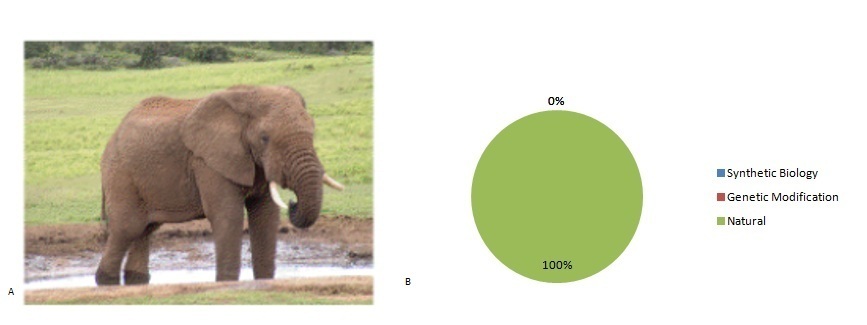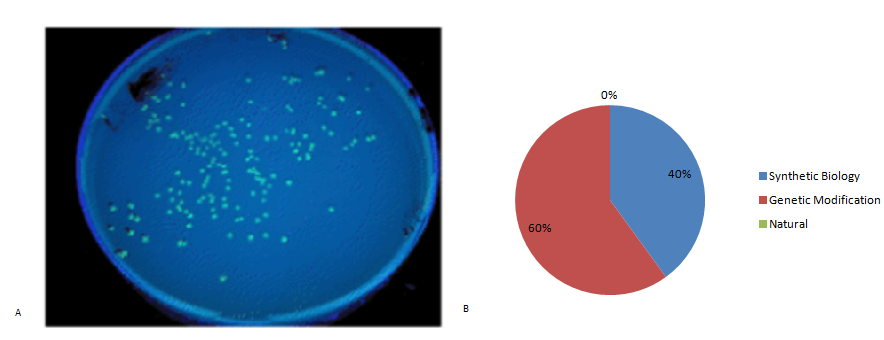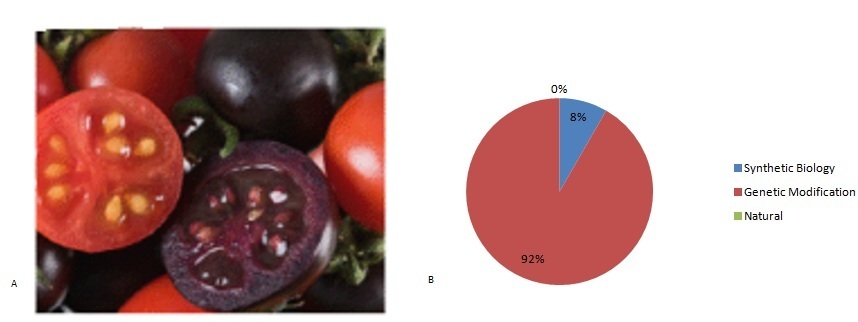Team:UEA-JIC Norwich/Human practices/Interviews
From 2011.igem.org
(Difference between revisions)
| Line 8: | Line 8: | ||
<br> | <br> | ||
Fig 1.A. Beagle Image. B. Image data interpretation. | Fig 1.A. Beagle Image. B. Image data interpretation. | ||
| + | <br> | ||
| + | <br> | ||
| + | Figure 2.A. shows an image of Dr Jay Vacanti work of successful growth of a human ear from cartilage cells on the back of a mouse. Image B shows that 29% of people associated the image with synthetic biology, and 71% associated it with genetic modification. | ||
|- | |- | ||
| | | | ||
| Line 13: | Line 16: | ||
<br> | <br> | ||
Fig 2.A Dr Vacanti's appendage donor mouse image. B. Image data interpretation | Fig 2.A Dr Vacanti's appendage donor mouse image. B. Image data interpretation | ||
| + | <br> | ||
| + | <br> | ||
|- | |- | ||
| | | | ||
Revision as of 14:47, 19 September 2011
UNIVERSITY OF EAST ANGLIA-JOHN INNES CENTRE
 "
"









